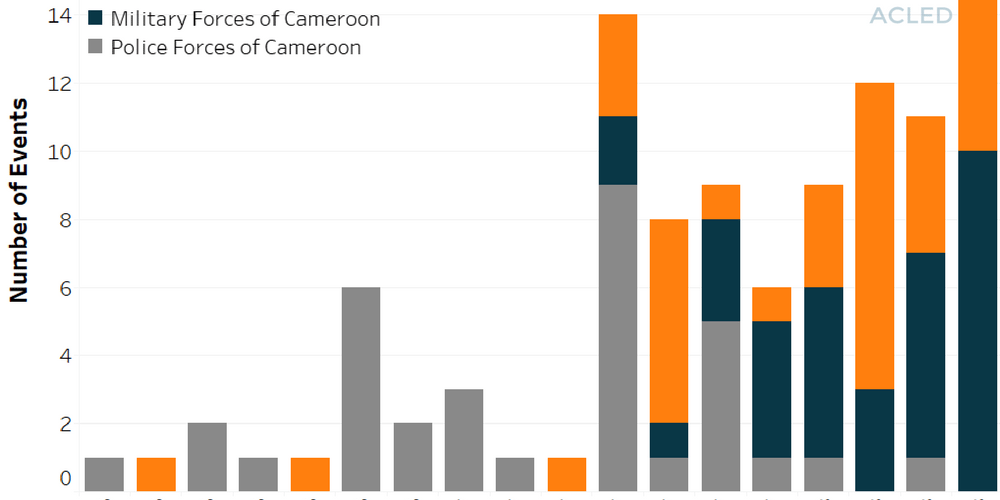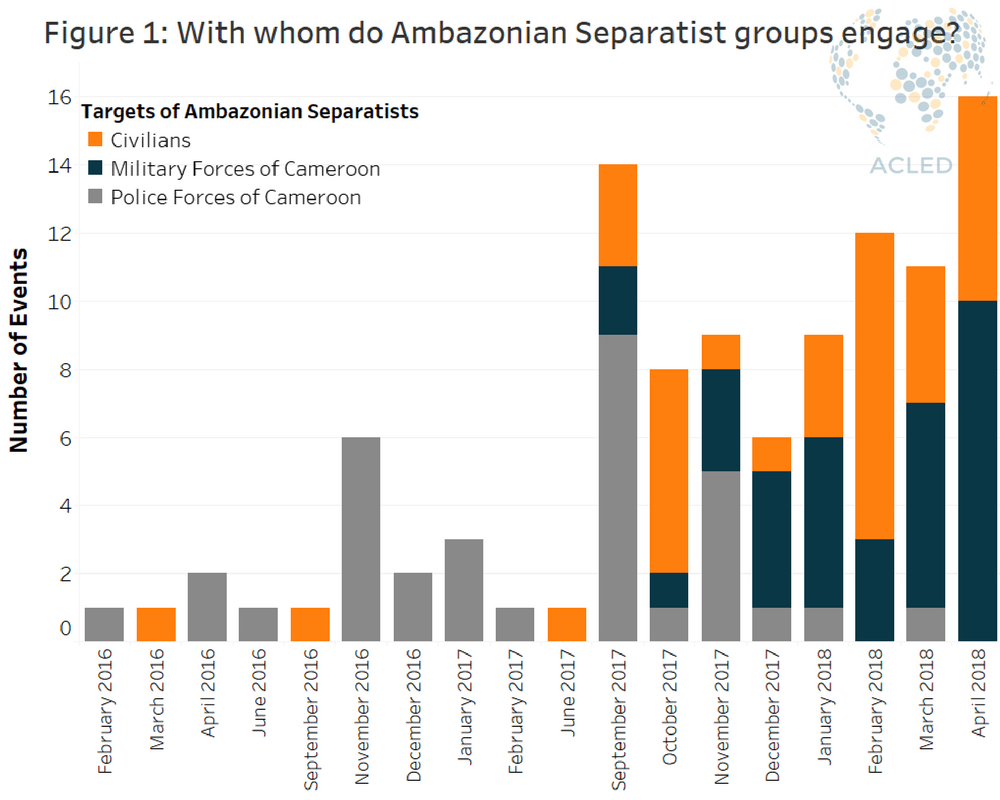There has been a change in the tactics employed by the Ambazonian Separatists in northwest and southwest Cameroon. Whereas the militants previously targeted security forces and state officials, they are increasingly targeting civilians and civil servants.
Following the protests denouncing the discrimination of Anglophone Cameroonians in late 2016 (ACLED, 9 October 2017), several armed groups emerged in the Anglophone regions of North-West and South-West, where English-speaking citizens are demanding that these provinces break away from Francophone Cameroon (Deutsche Welle, 2 October 2017). On 30 October 2017, secessionists proclaimed the “Federal Republic of Ambazonia,” formed an interim government and adopted a constitution, a flag and an anthem. The Federal Republic does not control the armed groups that surfaced during the protests, and, until recently, it was opposed to armed insurrection (Africa News, 11 February 2018).
However, several militant secessionist groups reportedly operate on the ground – a dozen self-defence groups (10-30 militants each) and three rebel militias, the Ambazonia Defense Forces (reporting to the Ambazonia Governing Council, which is not part of the interim government), and the two Southern Cameroons Defence Forces (ICG, 21 December 2017). These groups, armed with home-made rifles, kalashnikovs and improvised explosives, have been carrying out a low-intensity guerrilla war against the Cameroon Armed Forces (Cameroon Daily Journal, 13 September 2017).
Until recently, their strategies have consisted of attacking checkpoints and barracks, detonating bombs against security forces, and ambushing soldiers (Cameroon Concord, 8 December 2017). However, since September 2017, the Ambazonian separatist groups have not only intensified their attacks, they are increasingly targeting civilians (see Figure 1). In addition to attacking the security forces, Ambazonian militants have begun a campaign of abducting civil servants and civilians. In particular, two teachers were gunned down by militants riding motorbikes last week, in what appears to be a targeted campaign against educators (Journal du Cameroun, 28 April 2018).
This modus operandi recalls Malian and Burkinabé armed groups’ strategies in the Niger Delta and in the Soum, as well as Boko Haram’s targeting of schools (under the slogan, “Western Education is forbidden”). Targeting schools and local teachers is possibly a tactic to evict the state presence from the sparsely-populated countryside of North-West and South-West Cameroon. Given the weakness of the military presence in the area, putting the educational sector under stress would reduce the territorial range of action of the state and severely harm its capacity to deliver basic services.
AfricaAnalysisBoko HaramCivilians At RiskConflict MonitoringEducationPolitical StabilityViolence Against Civilians







